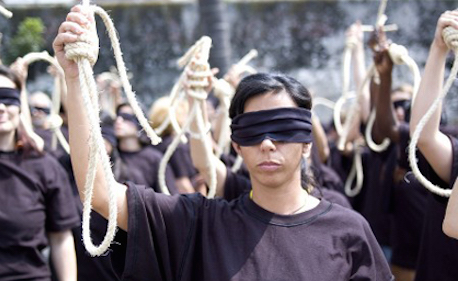The Catholic bishops of Papua New Guinea and the Solomon Islands strongly oppose the use of the death penalty.
In a new Pastoral Letter on the issue of the death penalty the bishops say capital punishment has “no place in a Christian country, where true justice and mercy should prevail.”
The bishops say where executions are performed by the State, people develop the attitude that it is acceptable to respond to violence with violence.
“We pray that the rejection of this form of public violence will set an example and lead to a rejection of domestic violence and all other forms of violence in our society and open the way to a lasting peace.”
In 1991 the Papua New Guinea Parliament reintroduced the death penalty.
In 2013 the Criminal Code was changed to set out the acceptable ways to do it: to hang, suffocate, electrocute, shoot or poison someone with a deadly injection.
The government argued that “this is the best way to protect society from the repetition of terrible crimes.”
“It is in response to this political legislation and this popular reaction that we, the bishops of Papua New Guinea and Solomon Islands, are addressing this letter in defence of life, highlighting several main reasons to say “no” to the death penalty,” the bishops say.
The prime minister of Papua New Guinea, Peter O’Neill, said the death penalty is “under review” in Papua New Guinea after recent global outcry over the execution of foreign drug convicts in neighbouring Indonesia.
O’Neill’s comments came on the eve of a two-day visit by Indonesian President Joko Widodo, under whose brief leadership 14 drug convicts have been executed, 12 of them foreigners.
Jakarta put to death two Australians, a Brazilian, and four Nigerians on a prison island, along with one Indonesian last month despite worldwide calls for them to be spared and heartrending pleas from their families.
Widodo was unmoved, arguing that Indonesia is facing an emergency due to rising narcotics use.
In response, Australia, a close friend of Papua New Guinea, recalled its ambassador from Indonesia for what it called the “cruel and unnecessary” executions while the United Nations expressed deep regret.
PNG has also faced national and international opposition to the reintroduction of the death penalty in a country where an execution has not been carried out since 1954.
Source
Additional readingNews category: Asia Pacific.




